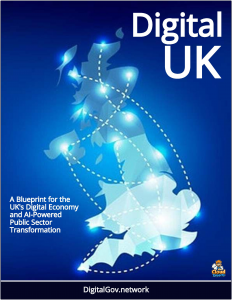 As Mark Lyons, Chief Technology Officer, writes here, the UK Parliament has released their new digital strategy.
As Mark Lyons, Chief Technology Officer, writes here, the UK Parliament has released their new digital strategy.
In the strategy document, the Information and Digital Strategy for Parliament 2024-27 sets out a comprehensive plan to transform the UK Parliament into a modern, efficient, and accessible institution through the strategic use of information, data, and digital technologies.
The vision is to empower MPs and Lords in their legislative and scrutiny roles, enhance public engagement, and strengthen operational resilience. By leveraging digital tools, Parliament aims to support its members with intuitive, secure, and reliable systems, providing real-time access to information and enabling flexible hybrid working arrangements to meet the demands of a dynamic legislative environment.
A key focus of the strategy is to deepen public engagement and transparency. By improving the Parliament website and digital platforms, the strategy seeks to make parliamentary processes, debates, and data more accessible and user-friendly for citizens.
Digital outreach efforts, such as social media campaigns and virtual tours, will be expanded to connect with diverse audiences, fostering greater public understanding and trust in parliamentary activities. This emphasis on openness aims to bridge the gap between Parliament and the public, making democratic processes more inclusive and understandable.
The strategy also prioritizes robust data and information management to underpin parliamentary functions. A comprehensive data strategy will ensure that data is high-quality, secure, and easily accessible, enabling better decision-making and policy development.
By modernizing IT infrastructure, particularly through cloud-based solutions and agile development practices, Parliament will enhance its operational efficiency and scalability. Cybersecurity is a critical component, with measures to protect against evolving threats and ensure the reliability of digital systems in an increasingly complex digital landscape.
Innovation and collaboration are at the heart of the strategy’s approach to future-proofing Parliament. By exploring emerging technologies like artificial intelligence and automation, Parliament aims to stay at the forefront of digital transformation. Partnerships with external organizations, including other parliaments and technology providers, will facilitate the sharing of best practices, while investment in staff development will build the digital skills needed to support these changes.
The Information and Digital Board will oversee implementation, building on the successes of the previous 2022-25 strategy, which focused on cloud computing and website renewal, and will regularly engage stakeholders to ensure alignment with their needs.
Recognizing the challenges of rapid technological change, the strategy addresses the need to balance innovation with security and reliability while fostering a cultural shift toward digital adoption. The opportunities are significant, from enhancing public trust through greater transparency to creating a more inclusive parliamentary environment.




